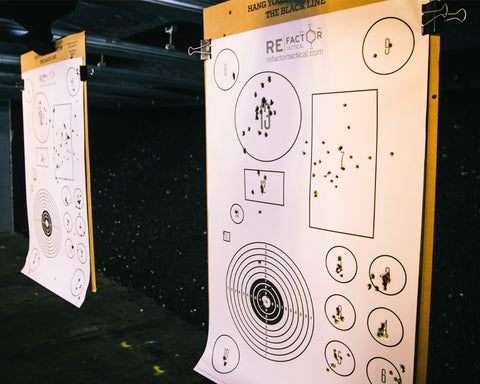I started studying German and Russian at the age of 11, and since then I’ve also studied Indonesian, Spanish, French, Arabic, and several off-the-wall languages that I needed for work. I’ve had many people ask me what I think is the easiest language to learn. The reality is the easiest language to learn will vary from person to person.
In general, English speakers will find Latin-based languages the easiest to learn. These are languages like Spanish, French, and Italian. This is primarily because a lot of the words from each of those languages have significant cross-overs, sound alike, and are sometimes even spelled the same. English speakers will find languages like Arabic, Russian, Chinese, and Japanese more difficult to learn because of tonal differences, unrecognizable alphabets, differing conjugations, and even societal differences.

The Easiest Language to Learn Ranked (for English Speakers):
Spanish
Italian
French
Portuguese
German
Most English speakers will find Spanish the easiest to pronounce, conjugate, and understand. I have personally studied both, and I found Spanish much easier to learn well; however, I picked up French faster than Spanish. This was partially because I already spoke Spanish and a lot of the French words conjugate like Spanish and or English, so I had a much easier time grasping the different language rules.
Easiest Language to Learn in the World
While this is a tough one to answer, I’d argue Indonesian is the easiest language to learn in the world. I studied Indonesian for five months through the military and following my training I was extremely proficient… far more proficient than I was learning Spanish and or French in the same amount of time. A lot of this is because Indonesian or Bahasa is an entirely made-up language. Indonesia has roughly 17,500 islands, with most of the islands containing their language or dialect. Following WWII Indonesia separated from Dutch colonization and declared Indonesian as their national language. This language was a sort of mix of the 700 languages found throughout Indonesia and would be used for government and military purposes.
Because the language was essentially made up it was made to be easily learned by default. Indonesian does not contain any conjugation. For example, in English, we say “the kid went to the store” or “the kid goes to the store,” here the very to go is conjugated. In Indonesian, there is no conjugation of the verb to go. Instead, you’d say “the kid goes to the store yesterday” or “the kid goes to the store tomorrow.” If you’ve ever learned a language, you’d know that conjugation is a huge part of a language. In addition, sentence structure in Indonesian is straightforward and can be mixed up. You could say “the kid goes to the store” or “to the store goes the kid” or “store go kid.” Say it however you like, and chances are you’ll be right.
Interested in learning a new language? Read our blog and find out how long it takes to learn a language
Is English the Easiest Language to Learn?
In general, no; English is a pretty hard language to learn. This comes from a lot of odd rules that make up the English language. Besides, English is a mix of Old English, Latin, Norse, Danish, French, German, Greek, Italian, Spanish, Portuguese, and more. In addition, English can vary from country to country. For example, an English-speaking person from the United States might have trouble understanding someone from Scotland due to their accent and even variations of words.
Best Language Learning Software
I’ve found there is a lot of different language learning software on the market. If you’re looking to learn an easy language a good language-learning program might not be a bad way to go. I have found that learning a language just from an online program can be difficult if not impossible. You will need to supplement your learning with actual human interaction and possibly some classes. However, language learning software is a great way to augment your language learning and can help speed up your process. I’ve tried a lot of the language learning programs, and I would recommend looking at:
Rosetta Stone
I like Rosetta Stone because it does a great job of drilling the basic phrases into your head. It uses a repetition approach which for me is excellent. Also, it comes with some solid study aids. Most often I will use this as a go-to for language learning supplementation. They also have live lessons with a native speaker which is beneficial. Finally Rosetta Stone has some solid games that are fun to do when learning a language becomes too tedious.
Pimsleur
Pimsleur is a primarily audio-based language learning software which I like because I can listen to it when I’m driving. I spend a lot of time in the car and airplane for work, so it’s a great way to kind of zone out and get an ear for language. For me being able to hear and understand what someone is saying in a foreign language is always my biggest hurdle. I pick up reading a lot faster, so this is an excellent way for me to augment that.
Rocket Language
Rocket Language recently revamped its language learning program, and it’s well done. They are similar to Rosetta Stone with their games, testing, and study guides. While Rocket Language had a rough start, they’ve done a great job of turning their program around.
Can You Learn a Language From a Language Learning Program Alone?
The short answer is no. When the last time you heard someone say they became fluent by using some language learning program was? My guess is never. However, all of these language learning programs are great for in-class work. I like going to school to learn a language where I have daily interaction with a teacher and then heavily augment my in-class work with online programs. Even if you’re taking a once-a-weeknight class to learn a language, you’ll most likely find that your time spent will be a lot more useful when augmented with some sort of language program. That being said, a language-learning program like Rosetta Stone is an excellent way to speed up your language-learning process.
Best Language Learning Software for learning Spanish
When learning Spanish, I used both Fluenze and Rosetta Stone. I found Rosetta Stone to be the most accurate program for learning Spanish. I would say that some language learning programs are better for different languages. Rosetta Stone does a great job of helping you to remember key phrases with continued repetition. For Spanish, I found Rosetta Stone helped me remember key phrases while Fluenze helped reinforce what I already knew.
The fastest way to Learn a Language
In a previous blog, we discussed the fastest way to learn a language. If you’re looking for a few bullet points I would strongly suggest doing the following:
Immerse yourself in the language (8-10 hours a day)
Embed yourself in a local setting (trip abroad)
Take a language course abroad
Use a language learning program
Listen to the language too and from work using Pimsleur
How to Learn a Language in 10 Days
Learning a language in 10 days isn’t possible, but it is possible to learn enough to get around. I immersed myself in French for three weeks, and after that time I was able to discuss politics, order food, tell someone how I was feeling, and more. The issue is that as fast as I picked it up, I lost it. Now if you asked me to throw out some French, it would be mostly a lost cause.
If you want to learn a language in 10 days, all 10 of those days, from morning to night, must be immersed in your target language. I’d strongly focus on learning the items listed in the blog above. Your key verbs and nouns are a great way to become proficient enough to get around. If you remember one thing and one thing only start with the verb “to be.” Knowing “I am,” “you are,” “he/she is” etc. is the best way to get going.
The Best Language Learning Apps
There are a couple of great apps that I’d recommend for learning a language. In many cases, your target language will have some great apps that are just for that language. If you’re looking for some good general language learning apps I’d recommend:
Rosetta Stone
Duolingo
Memrise
Babbel
Innovative 101
Busuu
Mango Languages
None of the above language learning apps will get you to learn a language alone, but they are all good additions to any training you have so far. I like to use them when I’m bored on a plane, waiting for the doctor or looking to fill some. A good language learning app will help reinforce phrases and can be used as an excellent augmentation device. However, I’ve personally found that an app alone will leave you very short of any proficiency.






Leave a Reply
Your email address will not be published. Required fields are marked *